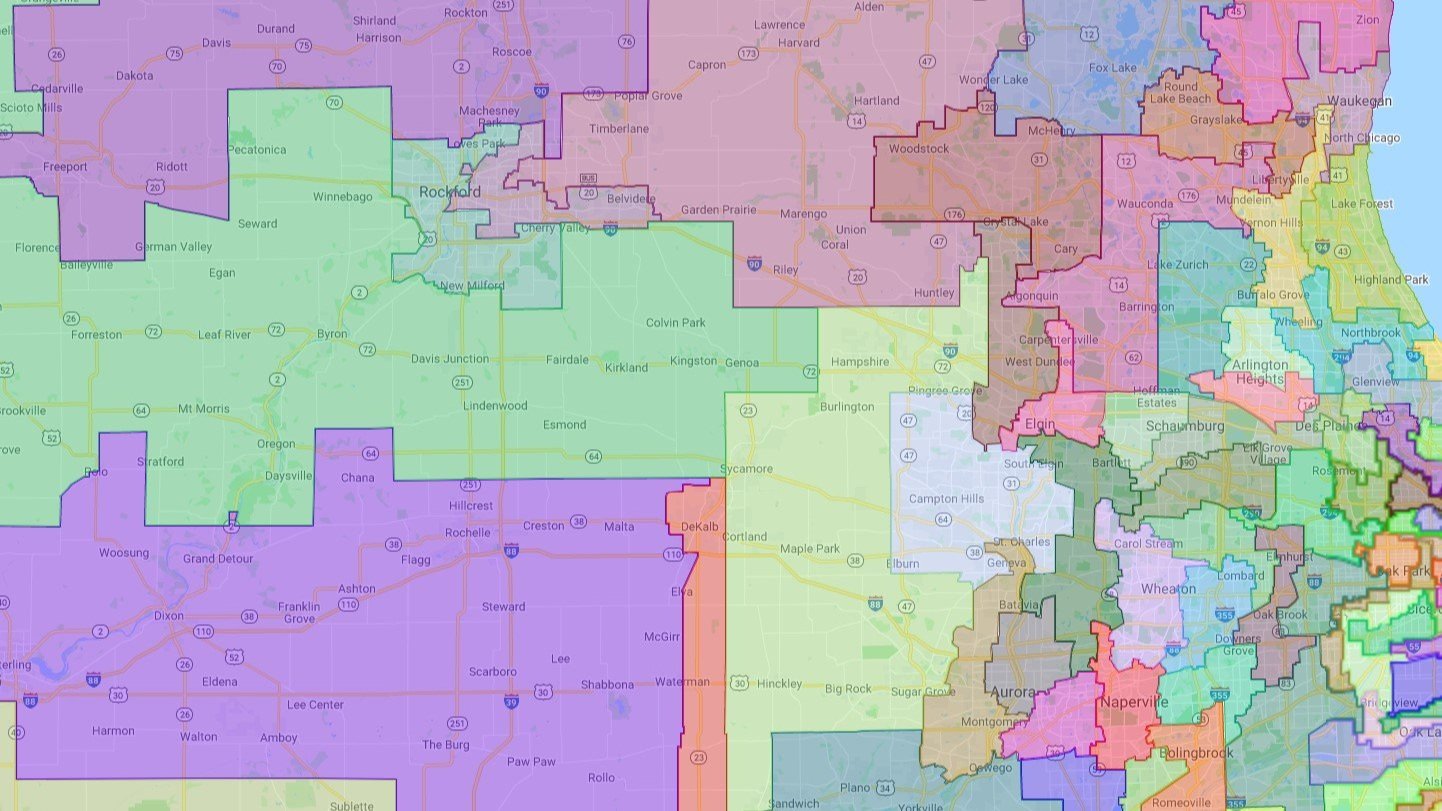Federal Court Upholds Democrat-drawn Redistricting Plan
A portion of the House Redistricting plan upheld by a federal court Thursday.
A three judge panel ruled against a challenge to the Democrat-drawn redistricting plan in a 64-page opinion released Thursday.
The judges, two Republican appointees and one Democrat appointee, dismissed challenges by Republicans, the Mexican American Legal Defense and Education Fund (MALDEF) and the NAACP.
We conclude that Plaintiffs have not proved that the September Redistricting Plan violates §2 of the Voting Rights Act. Plaintiffs have failed to show by a preponderance of the evidence that White or majority-bloc voting defeats minority candidates of choice, the third precondition for §2 liability under Thornburg v. Gingles. Plaintiffs cannot show §2 liability without meeting all three preconditions, so their §2 challenges fail.
Judges also said proposed fixes from the plaintiffs weren’t much of an improvement:
Many of Plaintiffs’ proposed districts barely surpass the 50% mark. For all but one of the districts in SB 927, Latino voters maintain a census voting age population of 42.7% or higher, which Legislative Defendants insist allow for additional opportunities to form coalitions with voters of other races to elect their candidate of choice, enhancing the overall political power of Latinos in Illinois.
In light of these figures, these three cases are not about “the chance for some electoral success in place of none.” Johnson, 512 U.S. at 1012–13. Rather, for many of the challenged districts, these cases are about “the chance for more success in place of some.” This disagreement also reflects competing views about how to guarantee Latino and Black voters, in their respective districts, equal opportunity to elect their candidate of choice when minority voters could form different permutations of majority-minority, coalition, and opportunity districts.
From the closing:
These are matters for the people of Illinois to continue debating. Levers other than federal courts are available to them, whether they are state statutes, state constitutions, and even entreaties to Congress, if they wish to change the current process. See Rucho, 139 S. Ct. at 2507–08. Our role as federal judges is limited and does not extend to complaints about excessive partisanship in the drawing of legislative districts. In Rucho, the Supreme Court identified two areas – “one-person, one-vote and racial gerrymandering”—in which there is a role for the federal courts with respect to at least some issues that could arise from a State’s redistricting efforts. Id. at 2495–96.
We addressed the former in our October 19 ruling [McConchie, 131] and the latter in today’s decision. But the Supreme Court has declared partisan gerrymandering claims to present political questions beyond the reach of the federal courts. Id. at 2507. Having found no statutory or constitutional infirmities in the map adopted in SB 927, our involvement in the current disputes over Illinois redistricting must come to an end with the entry of a final judgment.
Senate Republican Leader Dan McConchie (R-Hawthorn Woods) issued a statement following the ruling:
“This ruling is a disappointment, but that does not mean we will ever stop fighting for independent maps in Illinois,” said Illinois Senate Republican Leader Dan McConchie. “While we didn’t get the outcome we believe the people of Illinois deserve, the fact remains that Gov. Pritzker and his cronies broke their promises and failed Illinois families.
“It didn’t have to be this way. Gov. Pritzker could have kept his promise to support independent redistricting, but instead signed a map that was ruled unconstitutional and another that was opposed by voting rights groups throughout Illinois. Gov. Pritzker and his Democratic allies have made their allegiance clear: they are more committed to protecting the same political insiders who have been wrecking our state for decades than defending voting rights in Illinois.”
It appears any potential appeal would go to the Supreme Court, but no plaintiffs have commented on a potential appeal at this point.
We’ll update with more as we get it.
—
UPDATE (3:39 P.M.):
Here’s a joint statement from House Speaker Chris Welch and Senate President Don Harmon:
"From the beginning we have been guided by the goal of creating a fair map that recognizes the true diversity of the people of this great state. We appreciate that the court recognized and affirmed our efforts to ensure all communities across Illinois receive equal representation," said House Speaker Chris Welch and Illinois Senate President Don Harmon.
And from House Redistricting Committee Chair Rep. Lisa Hernandez (D-Cicero):
"From the beginning of this redistricting process, we have sought to reflect the diversity of this great state. Today's ruling confirms that our map is constitutional, adheres to the Voting Rights Act and preserves Illinois' reputation as a model for the nation when it comes to minority representation," said Rep. Lisa Hernandez, Chair of the House Redistricting Committee.
—



